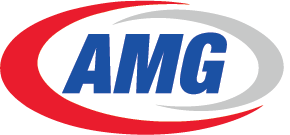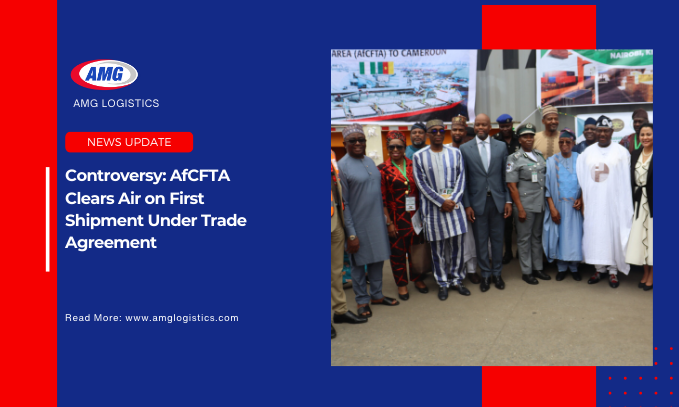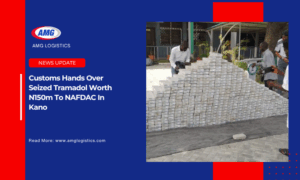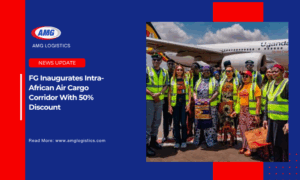The African Continental Free Trade Area (AfCFTA) has addressed a brewing controversy surrounding the “first” shipment under its framework, following a recent press briefing by the Nigeria Customs Service (NCS) Apapa command, regarding Tolaram Group’s shipment.
Recall that the Apapa Command of the Nigeria Customs Service had recently claimed that it had successful shipped first consignment of goods to Kenya under the African Continental Free Trade Area (AfCFTA).
The claim has however conflicted with and earlier one which suggested that Le Look Nigeria Limited, headed by its Managing Director, Mrs. Chinwe Ezenwa, was the actual pioneer in securing an AfCFTA Certificate of Origin.
In a conversation with our correspondent, Mr. Segun Olutayo, Lead of Enablement Coordination at AfCFTA Nigeria, shed light on the sequence of events and roles that have sparked the confusion. Olutayo confirmed that while Le Look was indeed the first Nigerian company to receive the AfCFTA Certificate of Origin, it did not translate to Le Look making the inaugural shipment. Rather, he explained, “The first actual shipment was conducted by Tolaram Group, specifically through its subsidiary, Lucky Fibers.”
According to Olutayo, receiving the Certificate of Origin under AfCFTA is only a preliminary step, akin to a starting point, and does not necessarily indicate that a shipment has been made. He clarified that, “it’s like saying, ‘on your mark, set.’ The certificate issuance was essentially the ‘on your mark’ moment for these companies. The actual ‘go’, which is the decision to make a shipment is left to each company’s discretion, depending on its readiness and market conditions.”
He explained that the certificate, issued by the Nigerian Customs as Nigeria’s designated competent authority, serves as a prerequisite but not a mandate for companies to begin exporting. This distinction, Olutayo emphasized, is critical to understanding the timeline of AfCFTA-related exports.
He emphasized that AfCFTA’s role is not to compel any business to begin exports, but rather to provide the framework and facilitation for trade when companies are ready. He noted that, “each company knows its product, its markets, and its agents in the target countries, so each must decide when it is ready to export. This decision involves financial considerations, logistics, and alignment with international trade partners.”
The Nigeria Customs Service, according to Olutayo, serves as the Designated Competent Authority (DCA) for Nigeria under AfCFTA’s Trading Goods Protocol, Annex 2, Articles 20 and 21.
He said Customs is tasked with verifying compliance and issuing the Certificate of Origin for goods intended for export under AfCFTA. Olutayo noted that, “the Customs Service’s role is to confirm that all AfCFTA standards are met before any shipment can move forward. Customs acts as our regulatory arm in ensuring these standards are upheld, and without its clearance, no company can make an AfCFTA shipment.”
Addressing the Le Look and Tolaram controversy specifically, Olutayo clarified that while Le Look’s receipt of the certificate was a milestone, it did not equate to an actual shipment. He stated that, “Le Look receiving the Certificate of Origin made it eligible, but it was Tolaram, through Lucky Fibers, that took the first step in actual trade, completing the first shipment under AfCFTA.” The misunderstanding, he noted, stems from equating certification with immediate shipping, which, in practice, involves more stages.
Olutayo further explained that the decision of when to initiate exports is affected by several factors, including company readiness and alignment with agents, financial capacity, and demand in destination markets. “For a company to engage in export, it needs not only the certificate, but also to consider business variables like market timing and logistics. That’s why some companies may take longer to begin shipping than others,” he said.
He said the AfCFTA agreement is anticipated to create expansive trade opportunities for Nigerian businesses by reducing tariffs and harmonizing customs procedures across African countries. With 54 nations and a combined GDP of over $3 trillion, AfCFTA’s potential to open markets for Nigerian companies is significant. However, Olutayo stressed that businesses must assess their readiness and build capacity to succeed in this new, competitive environment.
This initial phase under AfCFTA has served as a learning experience for Nigerian exporters. The Le Look and Tolaram cases underscore the importance of clear communication and understanding the sequential steps involved in AfCFTA exports. “What we’re witnessing is part of the process of adapting to AfCFTA, and every company will move at its own pace,” Olutayo remarked.
He expressed optimism about Nigeria’s future within AfCFTA, as more companies continue to familiarize themselves with the trade framework. “We’re taking the first steps, and this is only the beginning,” Olutayo concluded. “AfCFTA is a door opener for Nigerian businesses, but each company must decide when it’s the right time to step through. It requires a combination of patience, preparation, and business strategy to make the most of these new opportunities.”





